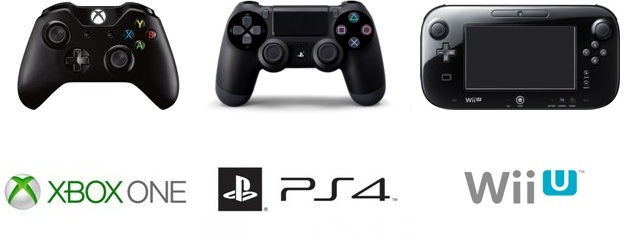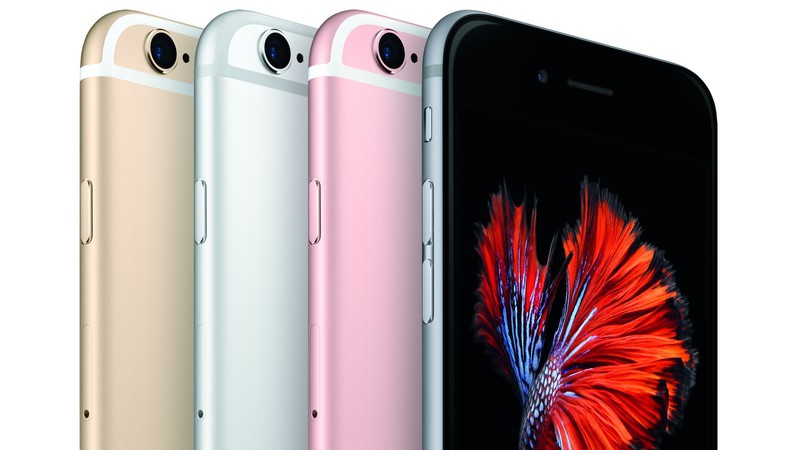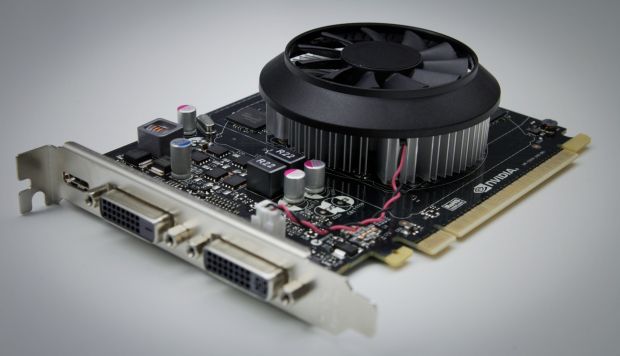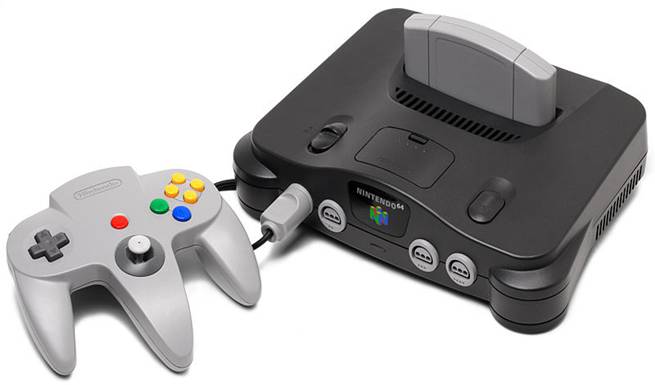
In 2014-15, Nintendo launched the New Nintendo 3DS, a revision of the Nintendo 3DS that went beyond just what regular hardware refreshes are- this revision added new features, yes, but it also added expanded control options to the 3DS, and more hardware processing power to the unit (the New Nintendo 3DS comes very close to Vita territory)- the result of all of this was that there were games that were exclusive to the New Nintendo 3DS units, games that would not run on older systems. In the middle of the 3DS life cycle, Nintendo went ahead and introduced practically a new platform, an iterative improvement over the original 3DS, but without breaking hardware compatibility.
Last year, Sony discussed the idea of introducing a new, more powerful PlayStation 4 in the middle of the console cycle. Pointing out that the PS4’s x86 architecture allows for iterative upgrades, Sony Computer Entertainment senior vice president Masayasu Ito stated that Sony could consider releasing a more powerful PlayStation 4 system in the future without breaking software compatibility.
Today, it was reported that Microsoft’s Phil Spencer had the same idea about where to take the Xbox brand. It has been commonly speculated that Microsoft may be looking at transitioning Xbox from a device based brand to a services based one, but Phil Spencer’s recent statement seems to indicate the exact opposite. “We can effectively feel a little bit more like we see on PC, where I can still go back and run my old Doom and Quake games that I used to play years ago but I can still see the best 4K games come out and my library is always with me,” Spencer said. “Hardware innovation continues while the software innovation is able to take advantage and I don’t have to jump a generation and lose everything that I played on before.”
There is a common idea to all these three, seemingly isolated incidents- Nintendo, Sony, and Microsoft all seem to be looking at ending the age old concept of discrete hardware cycles for their consoles and handhelds. Instead, it seems like all three may be looking at establishing a common hardware platform going forward, available in a variety of configurations, that can then be iterated upon and improved with future revisions and upgrades. In a sense, the way they are looking at hardware in the future is a shared platform or infrastructure, with inter- and intra-generational compatibility.
"Nintendo, Sony, and Microsoft all seem to be looking at ending the age old concept of discrete hardware cycles for their consoles and handhelds."
This is, as a matter of fact, a lot like how the smartphone and tablet markets run- the iPhone, from the very first model introduced in 2007, to last year’s iPhone 6s and iPhone 6s Plus (which were the eleventh and twelfth models introduced, respectively), has seen major improvements and advancements to its hardware in all these years- but the hardware platform is continuous across all of this. An app that ran on the very first iPhone will run on your iPhone 6s Plus too. When a new iPhone gets introduced this year, an app that runs on it will also run on your iPhone 6s- your iPhone 6s will continue to get supported with software for the next few years, until it is gradually phased out and dropped, allowing you with ample time to upgrade to a newer device.
In a situation such as this, there are no longer any discrete hardware generations- you don’t move from one unit to the next, with each unit representing a distinct point in the hardware evolution. Rather, we reach a continuum of hardware generations, with each generation seamlessly blending in with the ones right before and after it, with older hardware gradually being phased out, and newer one gradually being phased in.
The consumer electronics market in general works like this- we get new hardware refreshes for products on a regular basis. There will always be a new laptop, a new tablet, a new smartphone, and even a new generation CPU and GPU, every few months, no matter which brand you prefer. A strategy like this ensures that your devices are always on the cutting edge, and that your hardware never gets too outdated- imagine if the iPhone had kept the same hardware since 2010, while Samsung and HTC continued to push out new hardware every year! How would Apple ever be able to compete?
I can already see the arguments to my general thesis for this editorial begin to percolate, and they will probably pick up from the example I just laid out- the iPhone had an immediate competitor that was pushing out rapid hardware refreshes, so it could not afford to stay with static hardware for an extended period of time- doing so would have meant losing marketshare. However, all consoles usually last for 5-6 years on average- in the absence of any immediate competitor pushing either Sony, or Microsoft, or Nintendo into pushing out new hardware with more regularity, why exactly would these companies want to push out new hardware every few years, and risk alienating the millions who purchased their systems just a few years ago for hundreds of dollars?
"The console market is not insular, and it does not exist in a bubble. It is only one part of a larger gaming ecosystem, an ecosystem that consists of PC gaming and smart device gaming too."
It’s a fair point, but it does miss the larger picture- while there is no competition within the console market that may force these companies into iterative upgrades, the console market is not insular, and it does not exist in a bubble. It is only one part of a larger gaming ecosystem, an ecosystem that consists of PC gaming and smart device gaming too- and savvy readers have probably already realized that PC and smart device gaming do see rapid hardware refreshes. They do see rapid technological evolution.
The implications of this are already clear- at this point, the gulf between PC gaming and console gaming is wider than it has ever been before in history, in terms of gaming hardware. All three consoles this generation launched with relatively low end hardware, which was already outdated at the time of its release, outdone by the PC hardware of its time. Since then, PC hardware, which sees refreshes every six months or so (thank you, Moore’s Law), has only put more distance between itself and consoles, which have remained mostly static.
On the other hand, PC gaming is bigger than ever before, and anecdotally, it appears as though more and more console users are seriously beginning to consider, or acting upon, impulses to switch to the pastures of PC gaming. Even as the gap between PC and console gaming increases in terms of hardware, it is decreasing in terms of active users.
Consoles, however, can still thrive on the back of the more casual user- in fact, consoles have always attracted a more casual and mainstream crowd than PCs, which have been relatively geared towards the enthusiast. Someone who wants to play just Madden and Call of Duty every year usually purchases a console. However, even on that front, consoles are under fire right now- smartphones and tablets are now more powerful than ever before, and the gap between their hardware and the hardware in consoles and handhelds is only continuing to shrink. A smartphone can run a very reasonable approximation of a console game right now– close enough for the average consumer to consider making a smartphone their primary gaming device, instead of spending hundreds on a console, and then another $60 for a single game purchase.
And if this scenario sounds unlikely to you, I would like to remind you that this exact trend already caused smartphones to cause the death of handhelds– the average mainstream customer simply is not invested in games enough to care for the dedicated gaming experience. If they can get to play Madden and FIFA on their iPhone, then they won’t see the point in purchasing an additional, ultimately redundant console for hundreds of dollars- they’ll just stick with their phone. This means that consoles, in this case, would see a dramatic contraction in their market, catering to an ever smaller group of core enthusiast users, much like handhelds already have to do.
"The continued survival of the gaming console, then, is contingent on consoles being able to keep up with their competition- PCs for the enthusiast user, mobiles for the casual one."
The continued survival of the gaming console, then, is contingent on consoles being able to keep up with their competition- PCs for the enthusiast user, mobiles for the casual one. This means that they need to rapidly refresh themselves too, leading to shorter cycles per hardware refresh.
In such a scenario, we don’t have hardware generations anymore as much as we have timebound hardware SKUs- with newer, slightly refreshed SKUs coming every year, or every two years. Each SKU can be supported for at least a couple (or more) SKU refreshes after it- meaning that the console you just bought will be good for at least 4-6 years before it is completely outdated, and no longer runs new games, which is no different to how it is right now. On the flip side, you don’t lose your library at all when you buy a new console- all your games continue to run on the new one without issues, because compatibility and continuity is constantly maintained. It’s an ideal scenario for you as the customer.
And therein lies the biggest benefit to perhaps both, users and companies, in ending this cycle of console generations, and switching over to just having continuity in hardware. A new console always leads to an entire reset in terms of hardware and software. All of a sudden, there is new hardware to develop for (leading to software development taking a hit for a while as developers come to terms with it), software compatibility with the previous generation is always broken, and hundreds of millions of dollars are spent in R&D and marketing for these new machines. If consoles switched to rapid hardware refreshes, then the hardware would always be familiar enough for software developers to never be hindered, software compatibility would always be maintained, and R&D and marketing costs would become slightly less insane, since companies wouldn’t have to start from scratch in developing and marketing their systems every few years.
"The big elephant in the room here is the fact that consoles have already tried something like this before, and it has never quite stuck."
The big elephant in the room here is the fact that consoles have already tried something like this before, and it has never quite stuck- most notably, Sega did this with the Sega CD and Sega 32X back in the early 1990s, much to their own detriment. Nintendo flirted with the idea with the N64 RAM Expansion Pak. The idea never quite caught on.
Such an argument would be remarkably short sighted, however- not only would it be ignoring a part of the dedicated gaming hardware market where rapid refreshes have worked historically (the handheld market, where we always have a new revision every couple of years, and where mid cycle refreshes like the Gameboy Color, Nintendo DSi, and New Nintendo 3DS are very common), but that the market has changed greatly from the early 1990s. The rise of widely used middleware solutions, of multiplatform game development, the shift of the market towards ecosystems and platforms, the tendency towards services over devices, the commoditization of hardware, and the ever more rapid development of hardware than it ever was back in the 1990s has ensured that things have changed. People are now conditioned to expect major new hardware every few years- smartphones, laptops, tablets, PC CPUs and GPUs, and more, have all worked to firmly etch that pattern into consumers’ minds. More importantly, as established above, if consoles don’t work to keep up with technology, they risk becoming obsolete.
So yes, it seems apparent that this may be the last console cycle ever- but that’s not because there won’t be any more new consoles. Rather, it is because the idea of console generations is being discarded, as consoles evolve into the next stage of their existence. The future of consoles is not as discrete devices, but as continuous hardware platforms- in this form, consoles can continue to survive and exist as the major flagship platforms for gaming, as they have now for decades.
In this light, even though this is the last console generation, it doesn’t mean the PS4, Xbox One, and the Wii U/NX are the last consoles- rather, it is clear that consoles have a very bright future ahead of them. It’s just the outdated concept of console generations that will be dying out, to ensure their survival and transition into this bright future.
Note: The views expressed in this article are those of the author and do not necessarily represent the views of, and should not be attributed to, GamingBolt as an organization.


















